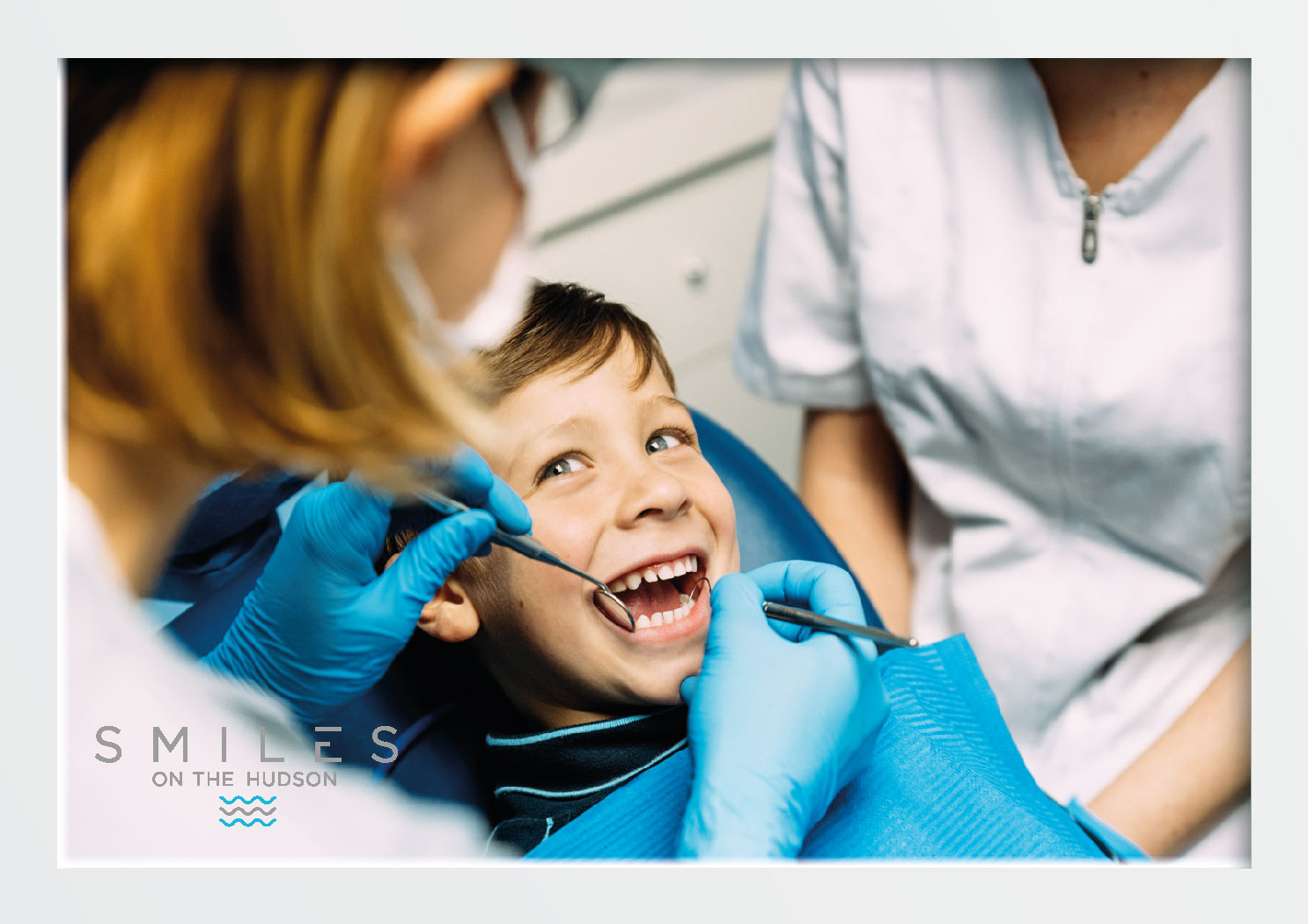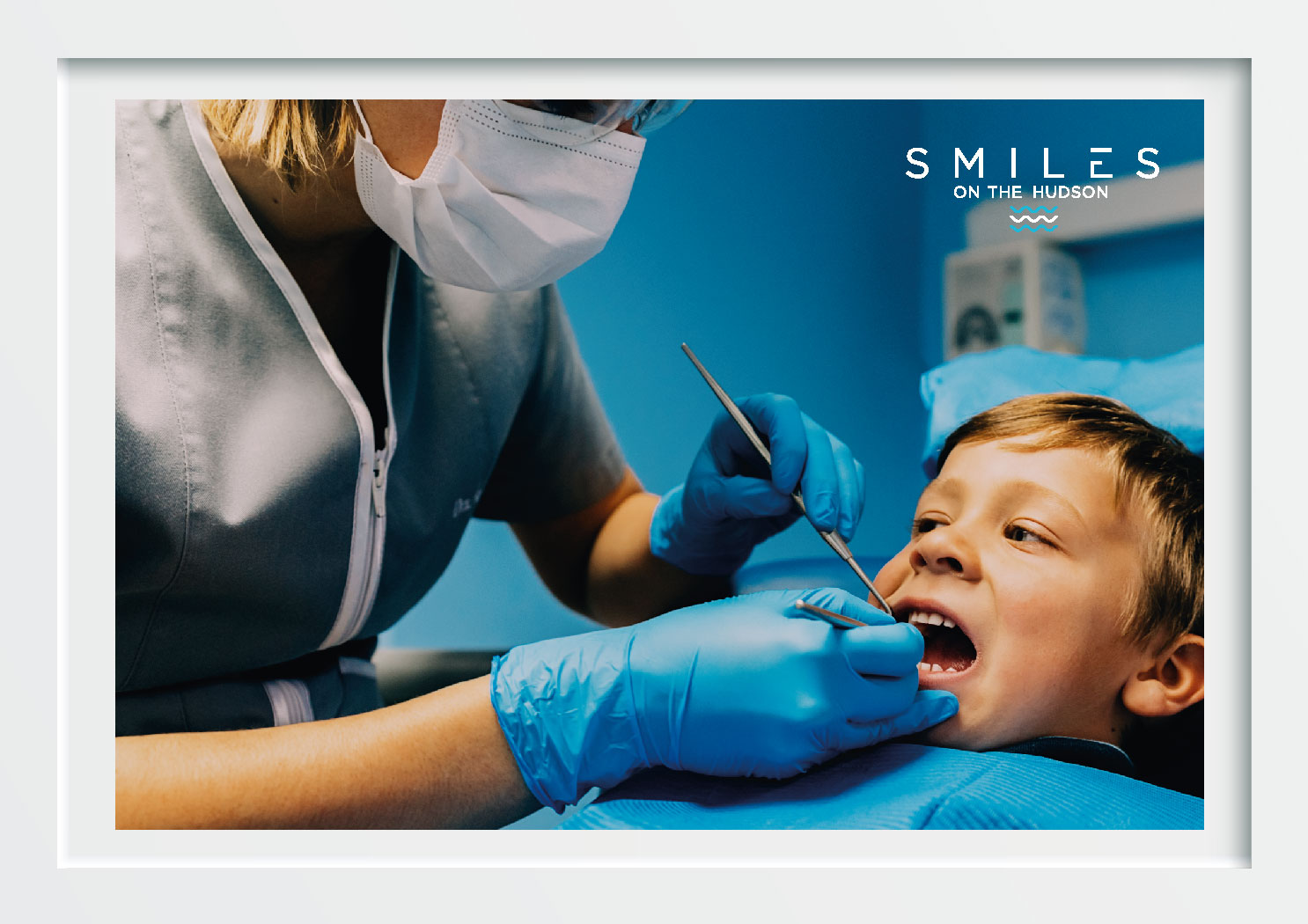
Children must attend a consultation 6 months after the appearance of the first tooth or before the first year of age.This will allow them to adapt early to the dental office and not have fears in the future.
In addition, education in oral hygiene practices helps children to acquire good habits.
The first appointment will be the most important experience, so it is an appointment where you seek to entertain and educate the child through games and visual aids.
In the waiting room, the children are adapted so that they feel confident enough to enter the room. Then, the dentist performs an oral examination to review every detail, explaining the findings to the parents and establishing the treatment.
The first visit will end with a small surprise gift that reinforces the behavior of the kid.

For children we offer the following procedures:
The first appointment will be the most important experience, so it is an appointment where you seek to entertain and educate the child through games and visual aids.
In the waiting room, the children are adapted so that they feel confident enough to enter the room. Then, the dentist performs an oral examination to review every detail, explaining the findings to the parents and establishing the treatment.
The first visit will end with a small surprise gift that reinforces the behavior of the kid.
These are very important to take care of your teeth and gums, before starting the cleaning, the dentist will perform an examination to check the presence of cavities, bacterial plaque and tartar. Then he will perform a cleaning that includes the removal of bacterial plaque and dental calculus which is the hardened plaque. These procedures are done with a motorized brush and prophy paste. Without the child feeling pain or discomfort.
Fluoride treatment is used to help prevent cavities. The fluoride will work by concentrating on the teeth and strengthening the most superficial layer of them (the enamel). It is recommended to do it every 6 months.
The teeth have pits where food debris can lodge that could cause cavities. To avoid this, the dentist will apply dental sealants to fill these pits. This is a painless treatment.
If your child has a color change in his teeth such as brown spots or a cavity, he may have tooth decay.
White dental fillings are used to restore the damaged tooth. These adhere to the tooth through an adhesive that makes them much more durable.
When the loss of tooth structure is too large, a dental crown is the best option, with it the tooth will look like the rest of the healthy teeth and will also protect it.
It is generally indicated after pulp therapy.
The pulp therapy aims to preserve the tooth that is affected. When the internal pulp inside the teeth is exposed it will suffer inflammation or infection, therefore it must be removed and replaced.
In order to carry out this process in the safest and most peaceful way for your child, at Smile on the Hudson
we have a team trained for dental sedation.
Once the child is sedated, the location where we will perform the treatment is numbed and this way we make sure
that they do not feel any discomfort.

The dentist will extract the damaged pulp using specialized instruments, clean the canals of the tooth and once it is free of infected tissue, the tooth will be sealed inside with a filling material. The dental crown for children will be the last material to restore it and give the tooth its natural shape back.
In the following circumstances it will be necessary to perform a dental extraction in children.
Milk teeth should only be extracted when necessary, as they are important for chewing and for indicating the position of the other.

-
What is pediatric dentistry?
Pediatric dentistry is a specialty of dentistry that focuses on comprehensive care for infants, children, and adolescents. A pediatric dentist receives training to be able to perform the consultation with different strategies that motivate and amuse the child.
-
When should I take my child for a dental visit?
The first consultation should be done 6 months after the first tooth comes out or before the first year. Afterwards, dental checkups should be performed every 6 months.
-
Why are milk teeth important?
The milk teeth are just as important as the permanent teeth because these will be the guide and the ones that save the spot for the teeth to come in.
In addition, any infection in a milk tooth may cause from a mild pain to abscesses that cover the child’s cheeks and face.
-
How can I take care of my child's teeth?
The care of children’s teeth is primarily the responsibility of the parents.
It is recommended to have the first consultation 6 months after the first tooth has come out. So that the child from an early age gets to adapt to the environment of the dental clinic. In addition, they should brush their teeth 2 times a day especially before sleeping. Brushing is recommended with a small head brush and fluoride toothpaste according to each age. And attend dental checkups for the dentist to perform preventive treatment.
-
Do children get cavities in milk teeth?
Yes, dental caries can appear on all teeth, even in milk teeth it is easier for caries to attack, so good oral hygiene and the application of fluoride and sealants are important.


